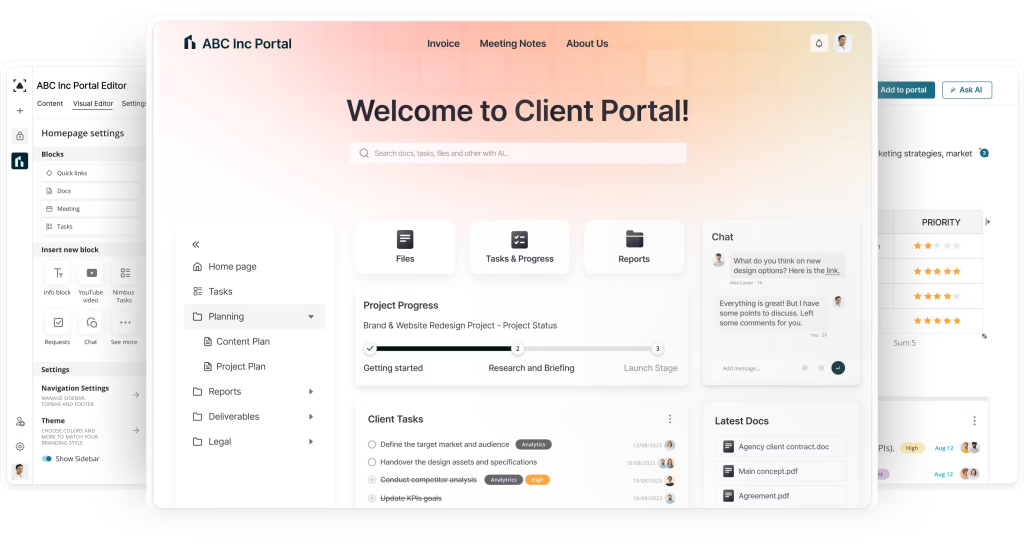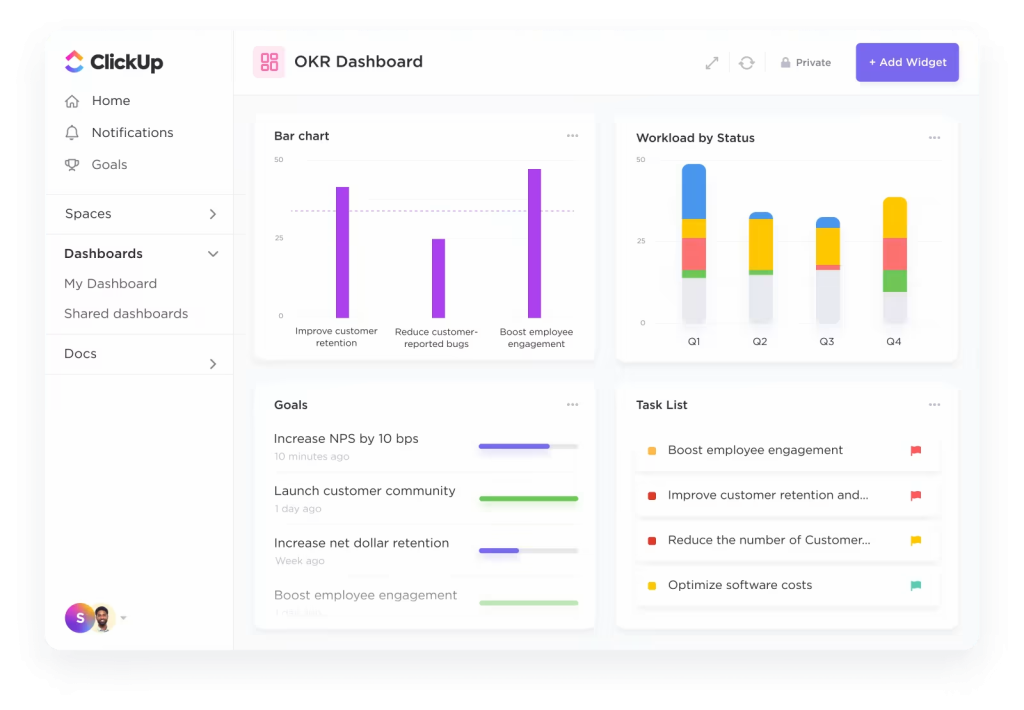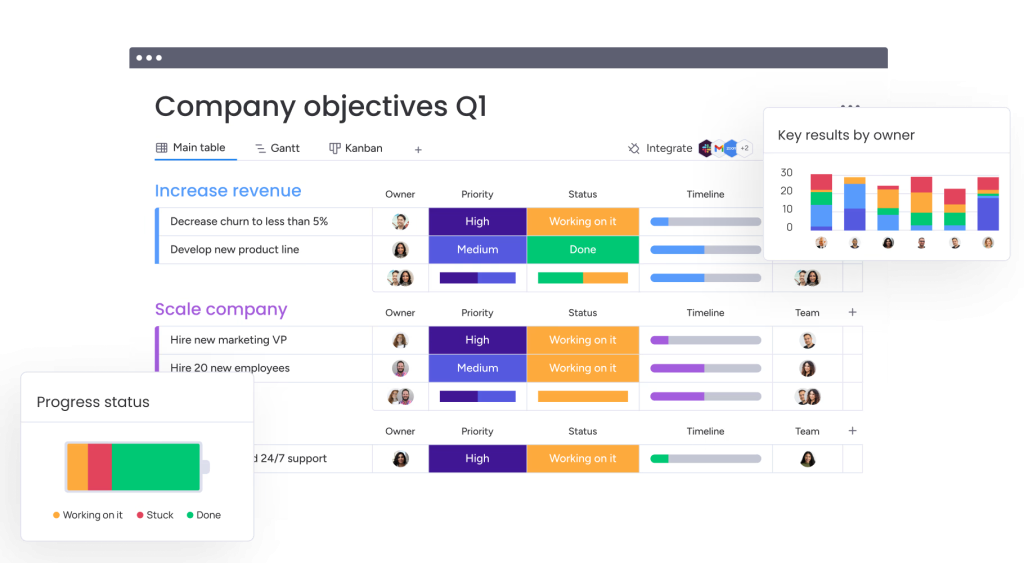
For startups, effective client communication is the linchpin that holds everything together. It’s more than just exchanging information; it’s the art of forging trust, building lasting relationships, and ensuring the success of your fledgling business. Whether you’re pitching to investors, onboarding new clients, or managing ongoing projects, clear and impactful communication can make or break your startup’s trajectory.
In this guide, we’ll delve into the intricacies of client communication, explore why it’s paramount for startups, and unveil five indispensable best practices that will set you on the path to success in 2024 and beyond.
What is Client Communication?
At its core, client communication encompasses all interactions and exchanges between your startup and your clients. This includes initial outreach and sales conversations to project updates, feedback sessions, and post-project support.
Client communication isn’t merely about conveying information; it’s about understanding your client’s needs, exceeding their expectations, and nurturing a relationship beyond the transactional. It’s about building a partnership where your clients feel heard, valued, and confident in your ability to deliver results.
Why Client Communication Must Be on Point for Startups
For startups, client communication isn’t just a nice-to-have; it’s a non-negotiable. Here’s why:
- Trust and Credibility: Effective communication establishes trust and credibility from the outset. When clients feel you’re transparent, responsive, and genuinely invested in their success, they’re more likely to choose your startup over competitors.
- Client Retention and Loyalty: Excellent communication fosters strong relationships, leading to repeat business and loyal clients who become advocates for your brand.
- Project Success: Clear communication ensures everyone is on the same page, minimizing misunderstandings, delays, and costly errors.
- Reputation Management: How you communicate with clients can significantly impact your startup’s reputation. Positive word-of-mouth recommendations can be invaluable for a young company.
- Growth and Expansion: Satisfied clients are more likely to refer you to others, opening doors to new opportunities and fueling your startup’s growth.
5 Best Practices of Client Communication for Startups in 2024
Personalization is Key
Every client interaction counts, and personalization is the secret ingredient to building rapport. By tailoring your communication to resonate with each client’s needs, you’ll show them that you value their time and truly understand their business. This personalized touch goes a long way in building trust and loyalty.
- Tailor your communication to each client’s unique needs and preferences.
- Use their name, reference previous conversations, and demonstrate that you understand their specific challenges and goals.
- Avoid generic, one-size-fits-all messages. Personalization shows you care and are invested in their success.
Active Listening and Empathy
Active listening is more than just hearing words; it’s about absorbing meaning and responding thoughtfully. When you truly listen to your clients, you uncover valuable insights that can guide your project strategy. Empathy allows you to connect deeper, demonstrating that you care about their challenges and are committed to finding solutions together.
- Don’t just talk; listen actively to what your clients are saying verbally and non-verbally.
- Pay attention to their concerns, questions, and feedback.
- Demonstrate empathy and understanding, showing you’re genuinely invested in their success.
Clear and Concise Communication
In the startup world, time is precious, and attention spans are short. Clear and concise communication cuts through the noise, ensuring that your message is understood the first time. Avoiding technical jargon and using visuals to enhance your explanations makes complex information easily digestible, saving your clients valuable time and effort.
- Avoid jargon and technical language that your clients may not understand.
- Keep your messages concise and to the point, focusing on the most relevant information.
- Use visuals, diagrams, or infographics to simplify complex concepts and make your communication more engaging.
Proactive and Transparent Communication
Proactive communication builds trust and confidence in your clients. By providing regular updates and addressing potential issues before they escalate, you demonstrate that you’re on top of things and have their best interests at heart. Transparency, even when things don’t go as planned, shows integrity and a willingness to work together to find solutions.
- Don’t wait for clients to ask for updates; provide them proactively.
- Be transparent about project progress, potential challenges, and any changes in timelines or budgets.
- Address issues promptly and honestly, demonstrating your commitment to resolving problems and delivering results.
Leverage Technology for Efficiency
Client portals provide a centralized hub for information and collaboration, while project management software keeps projects on track. Automating routine tasks frees up your time to focus on higher-value activities, and video conferencing adds a personal touch to virtual interactions, strengthening your client relationships.
- Utilize client portals, project management software, and communication tools to streamline communication and keep everyone organized.
- Automate routine tasks like status updates, reminders, and feedback collection to save time and resources.
- Use video conferencing for face-to-face interactions, fostering a more personal connection with your clients.
Best Client Communication Tools: Client Portals & Project Management
Leveraging the right tools can be the difference between chaos and clarity. Here are three standout platforms that seamlessly blend client portals with project management capabilities, empowering startups to foster stronger client relationships and streamline their workflows.
FuseBase

FuseBase is a modern and intuitive platform for client collaboration. It’s where projects come to life with interactive timelines, task boards, and document repositories, all meticulously organized and easily accessible. Clients can track progress, provide feedback, and sync with your team. With its focus on a modern, user-friendly interface and customization options, FuseBase is a powerful tool for impressing clients and keeping projects running smoothly.
🌟 Example of how Smart Portals transform your work:
ClickUp

ClickUp is a productivity powerhouse that transcends traditional project management. Think of it as your virtual office, where every task, deadline, and discussion is organized and accessible in real time. With its versatile features, you can create custom views for each client, share documents seamlessly, and track progress effortlessly.
Monday.com

Monday.com is a visual collaboration platform that empowers teams to work together seamlessly. Imagine a virtual whiteboard where you can map out projects, assign tasks, and track progress with colorful boards and intuitive timelines. Clients can be invited to collaborate on specific boards, giving them transparency and a sense of ownership.
🌟 Another example of Portals that transform your work:
Conclusion
Mastering client communication is an ongoing journey for startups. Still, by embracing and adapting these best practices to your unique business, you’ll create a solid foundation for trust, loyalty, and growth. Remember, effective communication isn’t just about words; it’s about building relationships that propel your startup toward success.

